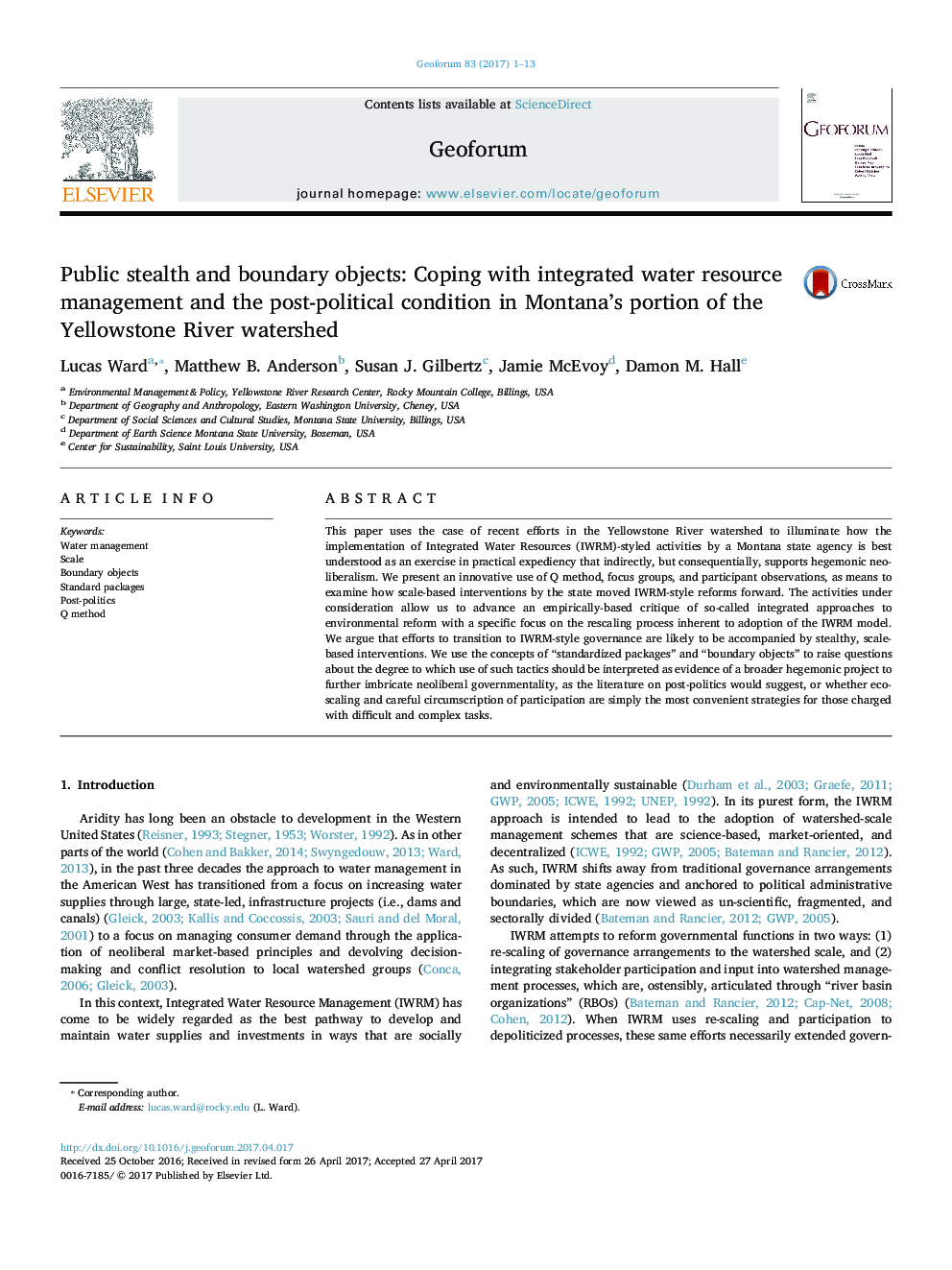| Article ID | Journal | Published Year | Pages | File Type |
|---|---|---|---|---|
| 5073143 | Geoforum | 2017 | 13 Pages |
Abstract
This paper uses the case of recent efforts in the Yellowstone River watershed to illuminate how the implementation of Integrated Water Resources (IWRM)-styled activities by a Montana state agency is best understood as an exercise in practical expediency that indirectly, but consequentially, supports hegemonic neo-liberalism. We present an innovative use of Q method, focus groups, and participant observations, as means to examine how scale-based interventions by the state moved IWRM-style reforms forward. The activities under consideration allow us to advance an empirically-based critique of so-called integrated approaches to environmental reform with a specific focus on the rescaling process inherent to adoption of the IWRM model. We argue that efforts to transition to IWRM-style governance are likely to be accompanied by stealthy, scale-based interventions. We use the concepts of “standardized packages” and “boundary objects” to raise questions about the degree to which use of such tactics should be interpreted as evidence of a broader hegemonic project to further imbricate neoliberal governmentality, as the literature on post-politics would suggest, or whether eco-scaling and careful circumscription of participation are simply the most convenient strategies for those charged with difficult and complex tasks.
Related Topics
Social Sciences and Humanities
Economics, Econometrics and Finance
Economics and Econometrics
Authors
Lucas Ward, Matthew B. Anderson, Susan J. Gilbertz, Jamie McEvoy, Damon M. Hall,
